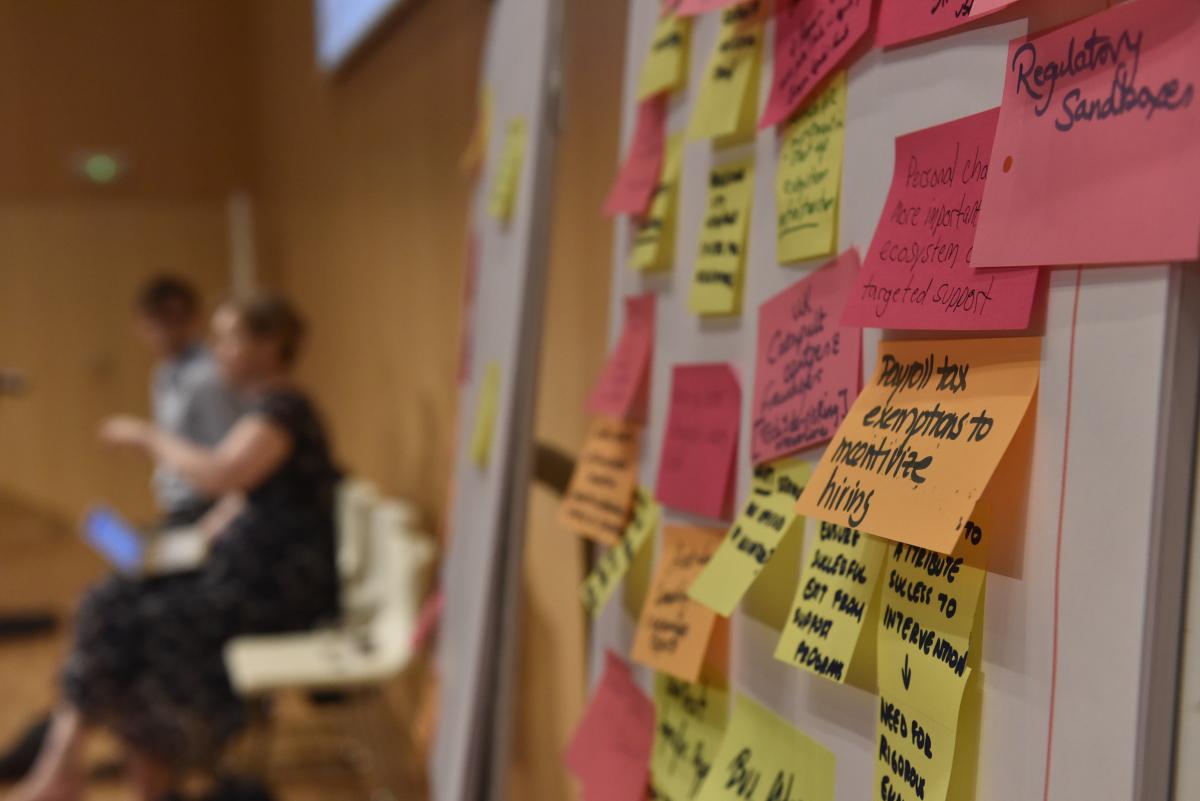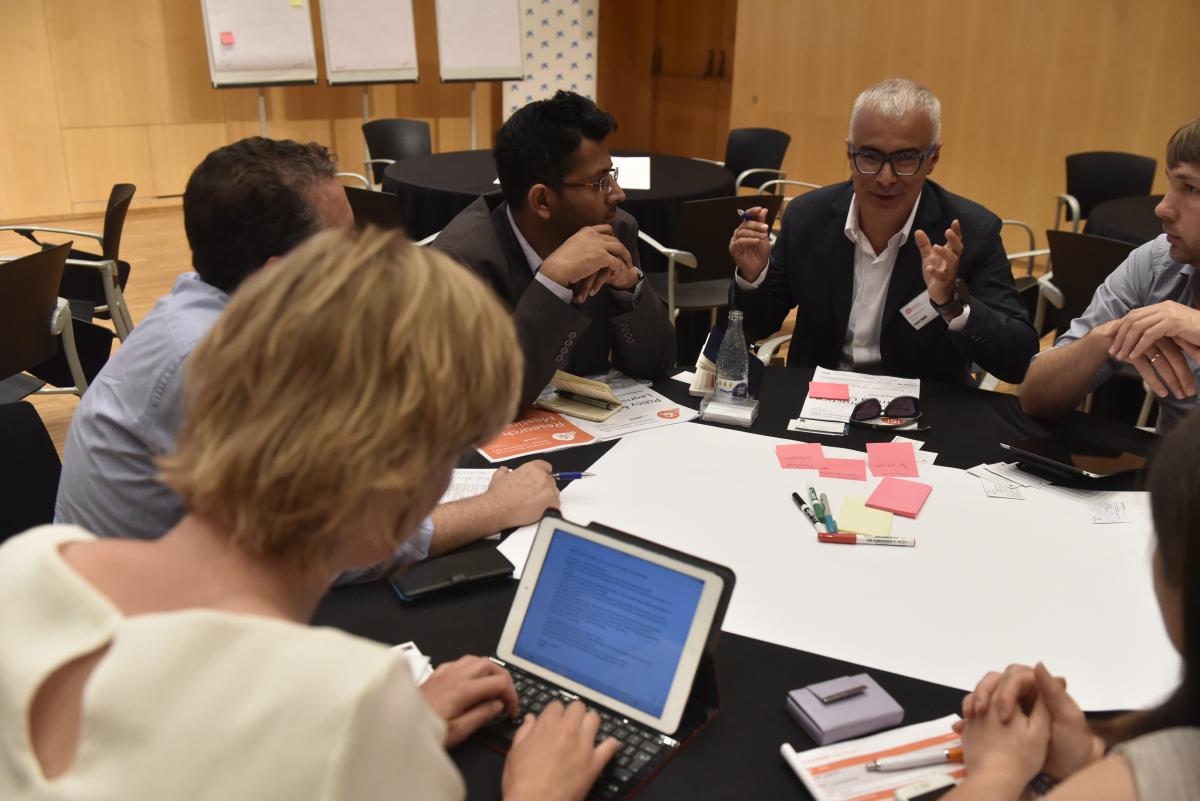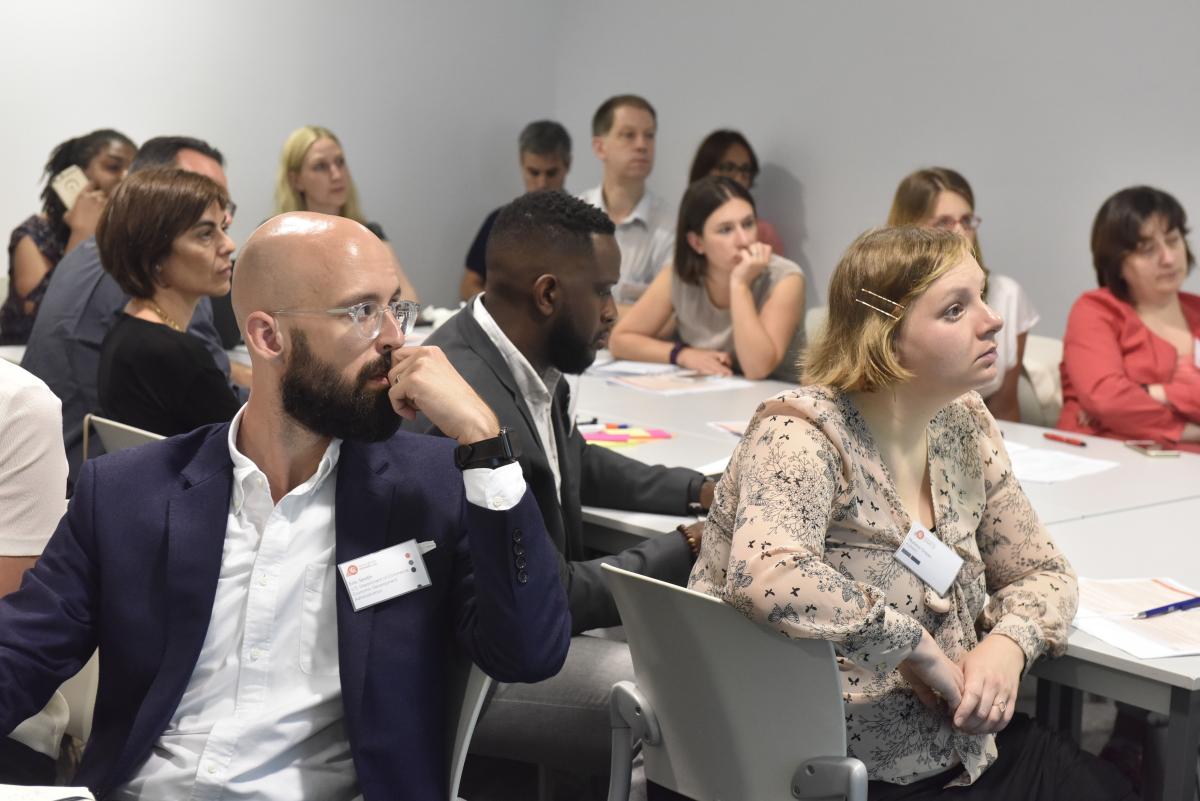
Blog
What were your takeaways from IGL2017?
12 July 2017
A month ago, we gathered over 250 policymakers, practitioners and researchers working in innovation, entrepreneurship and business growth for the Innovation Growth Lab Annual Conference. Presentations from the day are now available through links in the conference programme, also available is the IGL Experimentation toolkit.
As we reflect on our own learning from the event, we asked several of those present for their key takeaways and highlights. This blog looks at a selection of those received.
The benefits of being able to meet a huge range of people
From the outset, we wanted the conference to attract a unique mix of delegates spanning different countries, organisations and professions. To achieve this the programme, which has been likened to tapas, was designed to offer something for everyone.
We hoped that bringing this mix of people together would create new connections and collaborations; a better understanding of different perspectives (e.g. policymakers and academics) and provide the inspiration for new policies and research. It was therefore gratifying to see this reflected in the feedback.
“The cross-pollination is an element of the IGL conference that I find very appealing: you get in contact with people from very different fields and this facilitates the generation of new ideas (outside the box).”
Harald Hochreiter, Strategy, FFG
“I was delighted to participate in IGL in Barcelona and found the plenary and breakout sessions informative and excellent opportunities to learn about the latest developments in experiment design and techniques to understand the impact of innovation policies in a range of countries.
David Legg, Economics, Performance and Strategy, Innovate UK
“It was useful for me to hear from researchers and practitioners about the different approaches taken around the world to entrepreneurship, the role of high growth firms and policies that can be used to support firm growth. It was particularly interesting to hear about the methods that are being used to assess the impact and effectiveness of these policies. We are employing some of these methods now, so it was good to benchmark our approach against what others are doing.”
David Turvey, General Manager, Australian Department of Industry, Innovation and Science

Promoting the use of experimentation and showing how it can be used
Given IGL was created to promote a more experimental approach to innovation and growth policy; trialling new instruments but also evaluating them more rigorously. It is very pleasing to find that delegates had gone away with ideas for how they could experiment, whether it be through large policies to create and shape eco-systems, or small tweaks and adjustments to existing programmes.
“I found the content presented at IGL2017 to be incredibly useful and relevant to the work being done at MaRS Data Catalyst in Toronto. Specifically, the talk on the power of small experiments provided great insight on the types of experimentation we could conduct related to programme evaluation, a large focus for our team right now. Well done to the IGL team on putting together thoughtful content and executing a great event. I look forward to working with your team in the future.”
Melissa Dodaro, MaRS DD
“I was persuaded by the case for more testing and experimenting before investing public money. This was a common overarching theme of the conference; that it is often better to be investing a few thousand on testing in order to enable a few million to be spent well. In my opinion, this sounds like common sense but is not commonly applied in central government. It has inspired me to have more confidence in making this case for doing this my role as a policy advisor in government.”
Tom Robbins, Policy Advisor, HM Treasury
“I think my main learning/takeaway from the IGL conference was that combining data mining with experiments (e.g. behavioural nudges) could be extremely helpful for us at FFG. I will try to develop an approach where we can test measures to convert one-time innovators to more permanent innovators. The idea was triggered when I heard Shrupti Shah talk about an example from a completely different field.”
Harald Hochreiter, Strategy, FFG
“The session on “Learning from large eco-system level policy experiments” chaired by David Turvey from the evaluation branch in Australia was also inspirational and provided some key learnings about the challenge of designing evaluations and tracking the effects of policies over time. It was great to meet David at the event and learn about the synergies between Australia and the UK in developing evaluation frameworks to better understand the impact of innovation policies following the introduction of new national industrial strategies.”
David Legg, Economics, Performance and Strategy, Innovate UK
“A common theme over the conference was how to implement new ideas in policy-making, which can sometimes seem like taking a huge risk with the public’s money. The conference’s focus on how to experiment and test policy ideas – to learn more about what works best in different conditions before scaling them up – gave some great suggestions on how to get beyond that perception.”
Jen Rae, Head of Innovation Policy, Nesta

New approaches for dealing with policy challenges
Before the conference we set out five big questions that policymakers should be asking, which were then explored at the conference. In addition to providing ideas for how to tackle the big policy questions, we also wanted delegates to collect practical examples and tools that they could apply. For example, we had workshops in the Policy and Practice Learning Lab (PPLL) on how to run policy trials and to learn from failure.
The session on regulating highly innovative and dynamic businesses were incredibly useful, in particular how to regulate digital platforms. I took away a need to consider a broad range of new regulatory tools and smarter regulation such as outcomes-based approaches, regulatory sandboxes, testbeds, dynamic standards and innovation deals.
Chris Wright, Economic Advisor, UK Department for Business, Energy and Industrial Strategy
“A recurring topic was how to join up a country’s innovation ecosystem in countries to get greater impact from often disparate policy on innovation, business support, infrastructure and welfare. Here, we had talks on developing more inclusive cities, examples of adaptive regulation systems, and designing procurement processes that harness public buying power for innovation.”
Jen Rae, Head of Innovation Policy, Nesta
“In sessions during both conference and Policy and Practice Learning Lab, and through conversations with other delegates, I heard a lot of practical examples of how trials and other experimental methods have been used in other countries. These examples provide a great foundation for me to develop proposals for dealing with problems that my Department is struggling with.”
David Turvey, General Manager, Australian Department of Industry, Innovation and Science

Exploring the possibilities of the new data revolution
At IGL and Nesta we are very excited by the growing ways in which data can be used help improve public policy and generate growth. We are certainly not alone in this as the session on policy in the big data era proved to be very popular.
“I particularly enjoyed the breakout session on “Using data to develop better entrepreneurship and innovation policies” chaired by Juan Mateos-Garcia, head of innovation mapping at Nesta. The presentations provided some excellent insights into the use of data visualisation to show the effect that innovation programmes were having at a city level and how projections using data could show future scenarios for growth.”
David Legg, Economics, Performance and Strategy, Innovate UK,
“It was great to see some powerful techniques and data visualisation brought to life in the work that Nesta and others are doing.”
Andrew Ledger, Principal Consultant, Warwick Economics and Development
“The range of speakers and topics discussed showed the benefits of adopting a more imaginative and creative approach to using data to help shape the direction of policy and its implementation.”
David Greer, Head of Corporate Information, Invest NI
For a quick summary of the conference, please check out the post-conference video.
Preparation is already underway for IGL 2018 which is to be held in Boston and our winter research meeting. Further details coming soon, as well as the latest on the IGL Grants Programme.
Please signup to our newsletter to keep up-to-date with our work and let us know if you would like to work with us.
